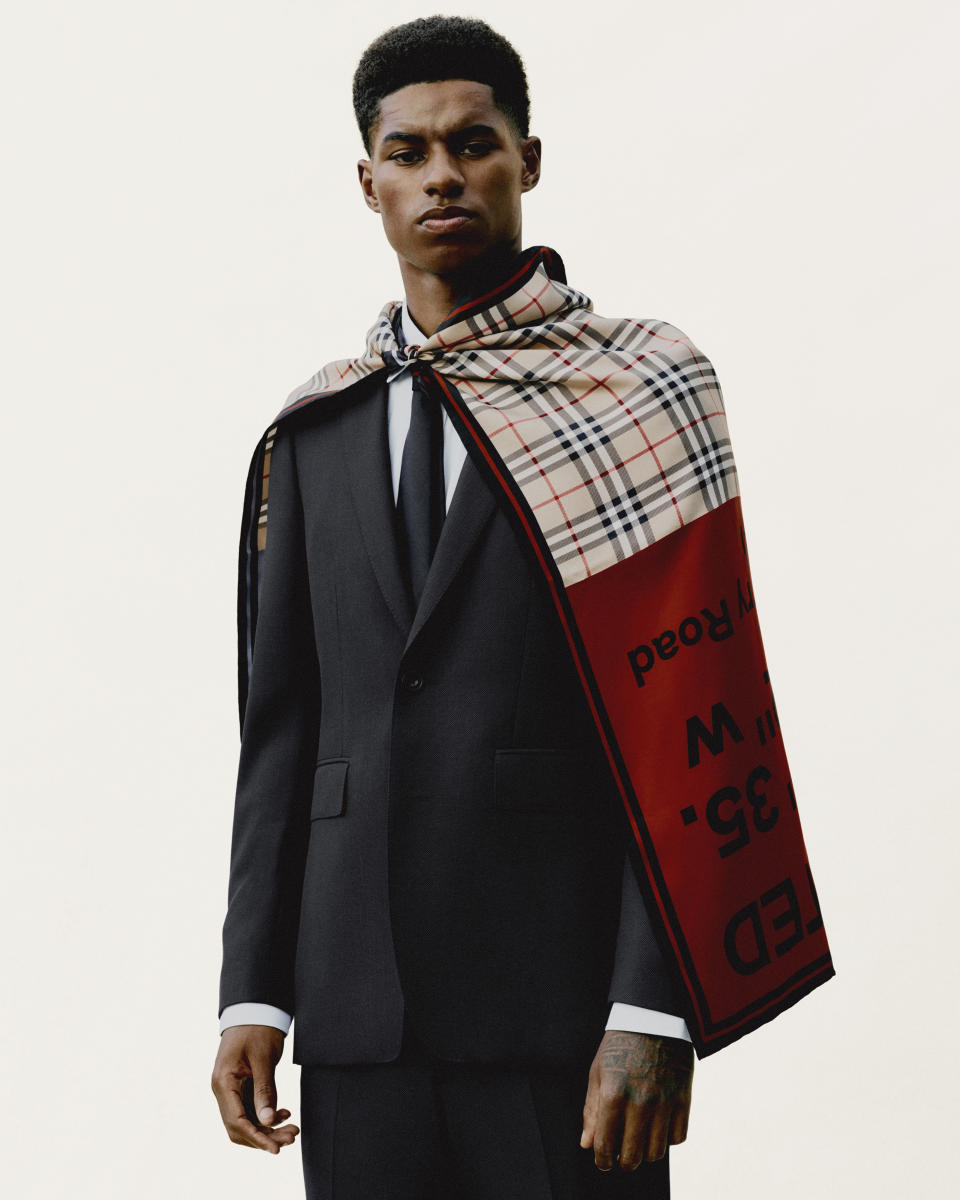Burberry, The Hut Group Take a Stand on Disability and Sustainability

LONDON — Two leading British brands, Burberry and The Hut Group, are ramping up efforts in the environmental, social and governance arena as institutional investors look ever closer at companies’ values and managers’ ethics.
Burberry has become one of the first luxury companies to join The Valuable 500 community, ensuring that disability inclusion is a priority on its agenda. Among the other new members in the organization is Prada Group.
More from WWD
The Valuable 500 describes itself as a global organization aiming “to put disability on the business leadership agenda.” It’s looking to sign up 500 national and multinational, private sector corporations to support the “social and economic value” of people living with disabilities.
Brands and retailers that had already signed on include Farfetch, Aston Martin, GHD, Marks & Spencer, Unilever and Fast Retailing. Outside the fashion, beauty and luxury arena, members include Airbnb, HSBC and Kantar.
Burberry, which has been at the forefront of ESG changes in the luxury sector, said it’s proud to be joining the organization.
“Disability inclusion has to be a priority for business and we are accelerating our own progress by implementing a global disability audit framework to highlight where we can have the most impact,” said Erica Bourne, chief people officer at Burberry.
“This work is part of our broader commitment to foster a truly open and inclusive environment, and we look forward to partnering with other signatories to drive meaningful change across the agenda,” she added.
Earlier this week, Burberry was recognized in the 2021 Bloomberg Gender Equality Index for the first time, in recognition of its efforts both within the organization and across the communities it works with globally.

In November, the company teamed with Marcus Rashford, the lead striker for Manchester United and anti-child poverty activist, to help charities that support young people in the U.K. and across the world. Rashford also appeared in a recent Burberry campaign focused on trenches and outerwear.
The charity tie-up has been so successful that, earlier this month, Burberry said its Rashford-related Instagram posts garnered the most likes in company history.
Julie Brown, Burberry’s chief operating and chief financial officer, said earlier this month on a company results call that the Rashford-related posts are seeing a “very, very high level of engagement. What’s resonating [on social media] is the importance of having a point of view and standing up for a cause.”
Last year, Burberry enacted an enriched, global parental leave policy giving new mothers and fathers the chance to work fewer hours, at full pay, in the weeks following their return from leave.
Burberry now offers all employees 18 weeks of parental leave at full pay, and the opportunity to work a 30-hour week, at full pay, for four weeks after they clock back into work. That compares with Kering’s policy of 14 weeks of paid “baby leave” for all new parents, and a mixed bag of h.r. policies across the other fashion brands and groups.
The Hut Group, another big British brand quoted on the London Stock Exchange, also took a big ESG step this week, unveiling a recycling scheme for all beauty packaging — not just its own.
It’s called Recycle:me by THG (eco) and will allow customers to send all used beauty products, regardless of the brand, back to THG to be recycled.
THG said that while consumers demonstrate the willingness to recycle, “often the U.K.’s recycling systems can cause confusion, particularly when it comes to beauty items with complex plastic packaging, such as mascara, lipstick and eye shadow palettes.”
According to the British Plastics Federation, THG added, only 32 percent of plastic is recycled in Europe, with the remaining going to landfill, incineration or into the environment.
Starting in the next few weeks, consumers shopping on THG Beauty sites in the U.K. can wash out any used plastic beauty products and return them to THG free of charge.
Espa customers already have access to the recycling scheme, while Lookfantastic, THG’s multibrand beauty platform, will launch Recycle:me to its customers in the next weeks, while all of THG’s beauty brands will be integrated this year.
The beauty products that customers send back are melted down and repurposed in partnership with Storm Board LLP — a company that turns plastic waste into weather-proof and recyclable “plywood” for social projects, including the creation of sustainable furniture and the production of playground equipment and refugee shelters.
Matthew Moulding, founder, chairman and chief executive officer of THG, said the new scheme is part of its ongoing pledge to reduce the company’s impact on the environment and create “innovative” new sustainability practices.
“We have started with our THG Beauty division as we know that recycling processes are particularly complex for plastic beauty products such as mascara, lipstick and skin care items with inbuilt pumps, which leads to many consumers simply disposing of their used goods in their household waste,” he said.
THG (eco) was founded last year and the company wants it to be the driving force behind its sustainability action plan.
The company, which listed on the London Stock Exchange last year and has a market capitalization of 7 billion pounds, said its vertically integrated business model means the group can “embed sustainability and best practice at the heart of product design, manufacture, delivery and customer journey.”
It recently attained carbon neutral certification from The CarbonNeutral Protocol, and has pledged to create one of the world’s first “green” e-commerce platforms.
THG said it has balanced out emissions by supporting low carbon sustainable development projects that reduce the equivalent amount of CO2 as the group takes steps to reduce emissions in the longer-term.
Sign up for WWD's Newsletter. For the latest news, follow us on Twitter, Facebook, and Instagram.

 Yahoo Finance
Yahoo Finance 